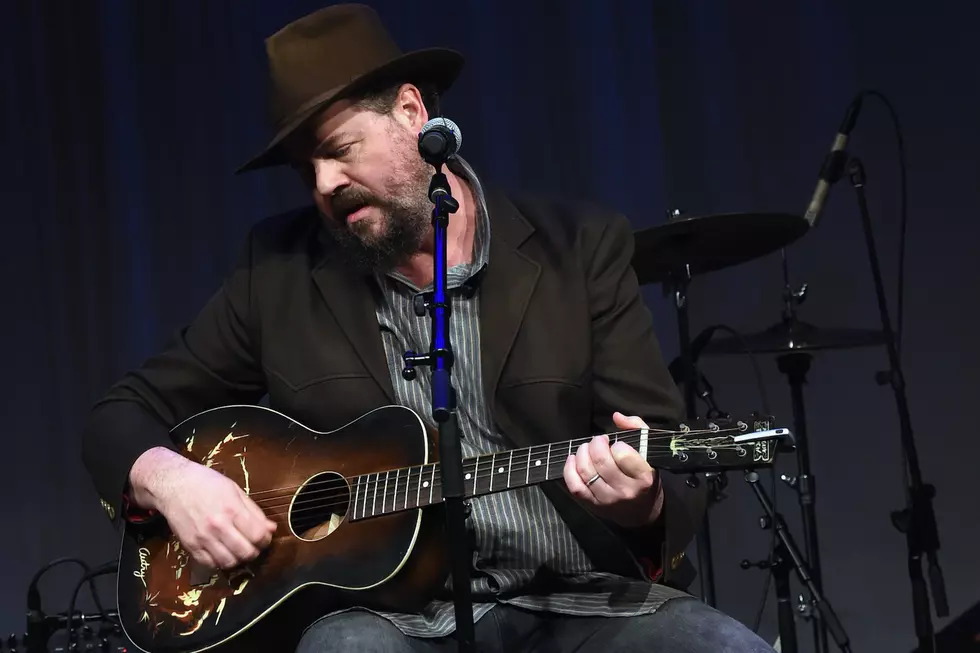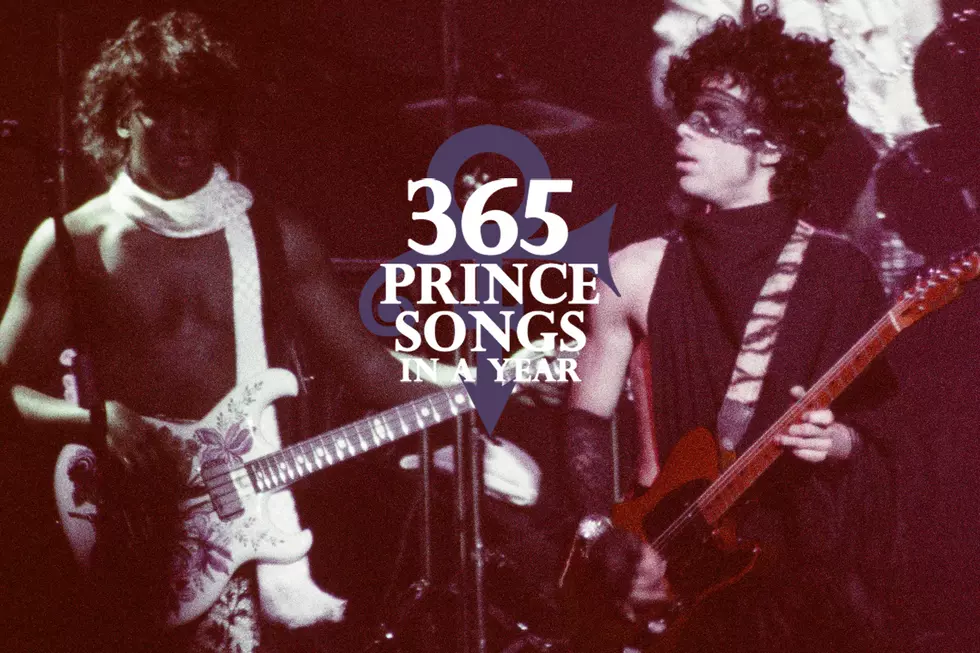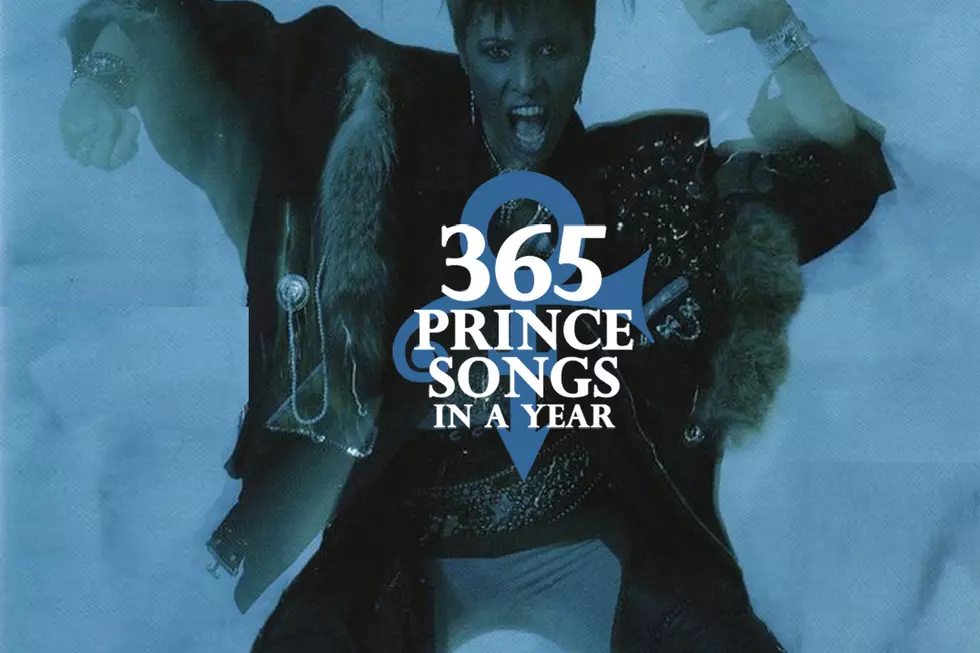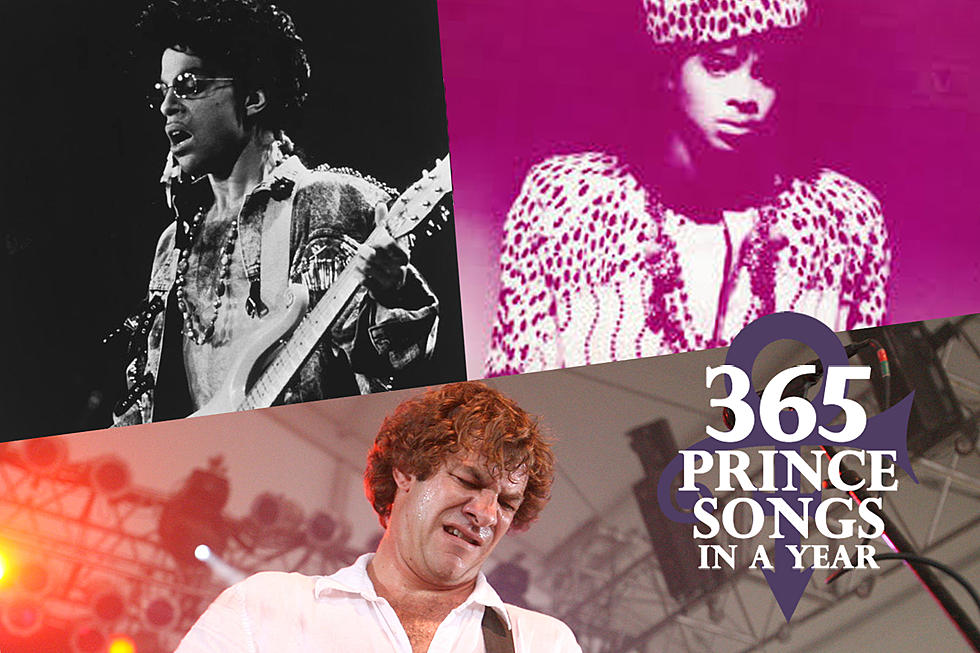Peter Holsapple on His Emotional New Single and the Legacy of the dB’s: Exclusive Interview
Peter Holsapple of the dB's fame is making a rare foray into solo work with a single that explores the harrowing post-war experiences of our veterans. "Don't Mention the War" has been paired with another new original called "Cinderella Style" due for release today via Hawthorne Curve Records.
As co-founder of the dB's, and then later as band leader after Chris Stamey's departure, Holsapple issued a series of well-regarded '80s albums that struggled to reach a wider audience because of distribution problems on a string of labels. Later, Holsapple worked as a touring member of R.E.M. and Hootie and the Blowfish before reuniting with the original dB's lineup for 2012's comeback triumph Falling Out of the Sky.
This new six-plus minute single, co-produced by James Wallace and Mark Simonsen, represents Holsapple's first solo music since 1997's Out of My Way, and features Benmont Tench of Tom Petty and the Heartbreakers fame along with members of his post-dB's group the Continental Drifters. A full-length album is set to follow for Holsapple, who joined us to discuss the impetus for "Don't Mention the War" as well as his time with the criminally underrated dB's.
You're releasing an epic story song about post-traumatic stress – and you tell it with such a fine grasp for detail. But can you discuss what led you to this extended format?
I started with the title – and, yes, let's get this out of the way: It came from Fawlty Towers. But as you can plainly see, it only has a nominal connection to the Monty Python thing – literally, nominally: The name. So, I was trying to figure out what to do with that, and then I wondered, "What if you wrote it from this perspective?" I was going to write it from the perspective of the guy with PTSD, but then I drafted some lyrics, and I wasn't connecting with it. So, then I thought, "Let's try something else." Then I started writing and it suddenly became from the perspective of the guy's nephew and his perspective. Then all of the lyrics just fell right out. When that happens, I find those songs the most trustworthy. It doesn't happen all that often; a lot of times, I'll labor over a song lyric for what seems like eons. This one, however, seemed to sort of jump right out of the box. But then the problem became: This should be enough words but, wait, there's more. [Laughs.] So, the song is making it known that it wants to be said in this form, so let's just play it really slow and get a couple of tubas on it – for the added mournful quality.
Was this initially supposed to be part of your upcoming solo album project?
I put it on a single because I was trying to assemble the tracks in my mind for the album, but this and [the b-side] "Cinderella Style" just didn't fit thematically, you know? But I didn't want to lose them. So, I thought, "Why not put this out as a sort of, 'Hi, I'm back; here's what I do now' kind of gesture?" They were great songs. That was the thing. I feel like I've got an abundance of really good songs for this record, but there's a kind of running theme through it which I don't want to mention yet. They're sort of tied together on the record, and these were more – almost like art pieces. Strike me dead that I said that! [Laughs.] But they seemed like framed pictures, you know?
For folks who are more used to you working with folks like [former dB's producers] Scott Litt or Mitch Easter, describe how you connected musically with James Wallace and Mark Simonsen.
James was the drummer for a remarkable band from the area here [Durham/Chapel Hill, N.C.] called Max Indian. Max Indian put out one CD and a couple of other songs, but that CD was the most amazing record I had heard in many a year – from the songwriting to the kind of inherently weird production, just everything. It had density, it had space. It had Beatles, it had Stockhausen, it had Can. It had so many things going for it that made me really fall in love with it. So, I met James through that band. Mark, I met because he's the vibes player, among other things, for a band called the Old Ceremony. The main guy in that band is Django Haskins, and Django has been part of Chris [Stamey]'s Big Star Third live shows. I also got to play with Mark in a kid's rock band that I was a member of for a few years. So, we got to be friends, and Mark has a studio and James has a studio. When I decided I was ready to make a move, I asked them if they were interested in producing it together with me, and help me and play on it and what have you, and they didn't hesitate.
Listen to the dB's Perform 'That Time Is Gone'
It's been almost five years since the last dBs record, and 20 since your most recent solo project. Are you back in a songwriting groove?
No, not really. [Laughs.] My life is so incredibly different from my rock 'n' roll heyday that it's hard to say a groove is necessarily available to me. I have children who I adore, and get to take them places like scout meetings and choir rehearsals. I have laundry. I'm the guy who does the laundry around the house – and gladly. It's very meditative. I have a lovely, incredibly generous wife who takes good care of the family and allows me the flexibility to write. So, I have time at my disposal to do this, but I can't count on it. I've dealt with some periods of intense writer's block over the years – a couple of years at a time, where nothing would happen. When I was a sapling rock 'n' roller, and I could live in our practice space where there was a four-track, I was pumping the songs out fast and furious. But I had nothing tying me down. I had nothing, really, to go home to – so what else am I going to do with my time?
In that time, what's changed for you as a songwriter?
I think what's happened over these years is, I've gotten a better sense of what I want to get out of playing music. I spent a lot of time wondering why the records I was making weren't vaulting to the top of the charts – as they rightly should have. But realistically, it didn't happen. I understand that. It didn't happen for the dB's, it didn't happen for the Continental Drifters. But we have among us a great body of extremely good work, and that can not be taken away from us. That is our legacy. Whether people bought it or not, it's sort of not the point. I took a long time to realize that. I've got the important stuff now. I've got a family that loves me. I've got all kinds of goodness.
When you think about all of the label-related setbacks that the dB's had, do you think you might have had an easier time of it in today's marketplace since now it's more about playing live and interacting through social media with fans?
Maybe, I don't know. I mean, we did our job. But it's like, everything you know is wrong – to quote Firesign Theatre. Every move you make is the wrong one, somehow. You don't know it at the time; you do what you think is best. I don't think any of us went into any of these decisions thinking for a moment that this is going to be a catastrophic failure. We had a little bit of myopia in the latter part of the band. I can't deny that my leadership quality there was sorely lacking. A lot of things that went on for the dB's at that point were probably because I wasn't doing a very good job as the organizer of the remaining dB's. Chris was a natural leader, so when he was in the band he really did a great job of keeping us going on a path. I'm sure that got exhausting after a while. Naturally, the mantel should have fallen directly into my lap. And it may have, but I just put it beside the chair and didn't look at it. [Laughs.]
Listen the dB's Perform 'Black and White'
It's funny, I remember seeing you on R.E.M.'s 'Green' tour, off to the side playing guitar, and thinking to myself: "Maybe Holsapple's just a band guy." Is that right? Were you uncomfortable being a focal point?
That was an incredibly uncomfortable time, being the guy singing all of the songs – and to be looked upon for all of the witty stage patter. The problems with that lay in that I wanted everything to be very democratic. You know, it was very important to me to make sure that everybody in the band was talking and deciding, and things like that. But when you're the singer of the songs, and they're your songs, then that responsibility kind of falls to you. So, yeah, bands are great. Bands are fun. But I got my fill of that with the two main bands I was in, and I can't do that again.
As a grown-up – for lack of a better word – I wonder what your relationship is with a song like the dB's "Bad Reputation"?
I definitely painted myself into a corner, lyrically, with that song. But I did feel better when [former R.E.M. producer] Don Dixon covered it. He has a couple of years on me. [Laughs.] Yeah, I have no business singing "Bad Reputation" anymore, and that's fine. To me, the timeless songs of the dB's are the ones that have risen to the top on their own: "I Feel Good," and "Happenstance" are that way. Of my songs, I think "Black and White" and "Neverland" and "Amplifier." Those all seem to have taken root in people's brain pans. "Love Is For Lovers," we're very lucky that people know that one. I think the newer dB's album has a few, like "Before We Were Born," which I think is just remarkable. My kids love that song. "She Won't Drive in the Rain Anymore" is another good one on there. It's nice that we've been able to make stuff that lasts.
I imagine you had the same aspirations with the new single.
Those songs have affected people, and that's what's been really cool with 'Don't Mention the War.' The perspective and the subject matter and the video have prompted people to get in touch with me and they've told me that it really affects them personally – either from experience, or with a family member or patients of their's that they are treating with PTSD. To hear that sort of thing when you've written a song makes you feel that there's more to this than pulling it out of the air and slapping it on a record. It's got a power unto itself, and it's a comfort zone for people. It's a really great job that I have, you know? It's a nice career I picked.
R.E.M. Albums Ranked in Order of Awesomeness
More From Diffuser.fm









